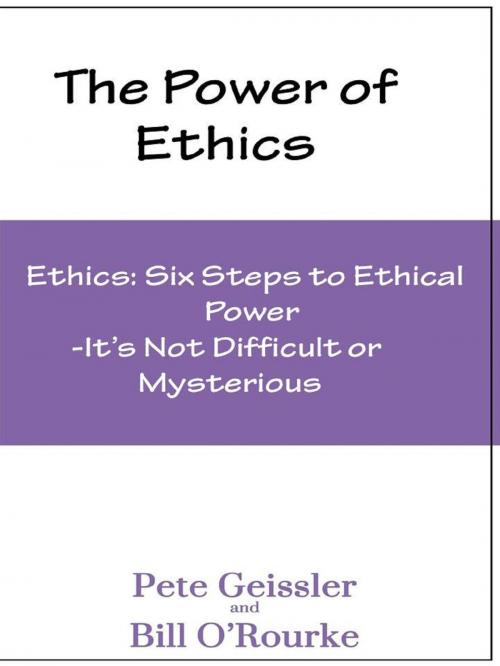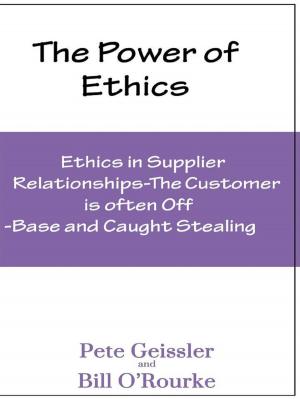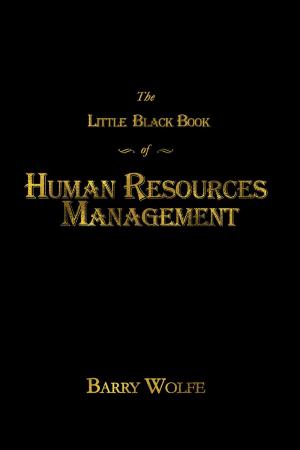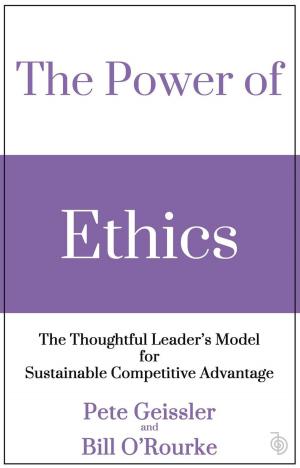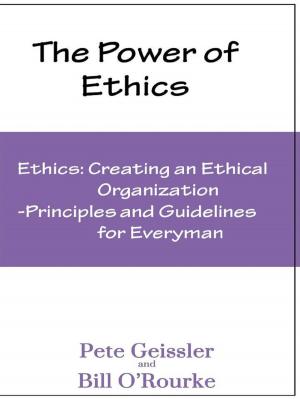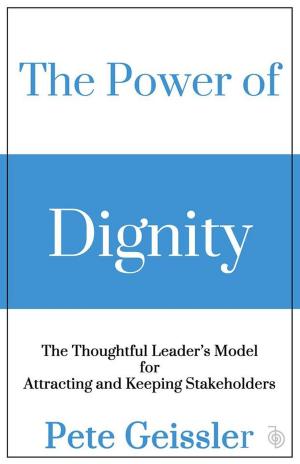Ethics: Six Steps to Ethical Power: It's Not Difficult or Mysterious(The Power of Ethics)
Business & Finance, Business Reference, Business Ethics| Author: | Pete Geissler, Bill O'Rourke | ISBN: | 9781310211249 |
| Publisher: | The Expressive Press | Publication: | June 12, 2016 |
| Imprint: | Smashwords Edition | Language: | English |
| Author: | Pete Geissler, Bill O'Rourke |
| ISBN: | 9781310211249 |
| Publisher: | The Expressive Press |
| Publication: | June 12, 2016 |
| Imprint: | Smashwords Edition |
| Language: | English |
Ethics - described briefly as the norms by which acceptable and unacceptable behaviors are measured - has been the concern, and perhaps the great dilemma, of sentient humans since Socrates subjected it to philosophical inquiry almost 2,500 years ago. Socrates believed, without universal acceptance, that the most pertinent issues people must deal with are related to how we live our lives, what actions are and are not righteous, and how people should live together peacefully and harmoniously. A vast parade of philosophers, religious leaders, politicians, professors, and self-help gurus have followed Socrates' lead through the ensuing centuries; it's a popular and enduring subject, perhaps because it is so complex, intriguing, and pervasive in every facet of our lives.
Today, in 2015, ethics dominates our news in the form of antiethics. The headlines in newspapers and the lead stories on TV, radio, and Internet news are typically about such abhorrent behavior as lying, stealing, revenge, convictions for corruption, gratuitous murder, and misuse of public or other people's funds for personal gain. Readers, viewers, and listeners can hardly be faulted for thinking that we live in a corrupt society - exactly what Socrates and others did not want or envision. Perhaps the antiethical stance of the media is the most antiethical part of our society.
Nevertheless, the battle for a more ethical society rages unchecked and unabated; one needs only to examine the dozens of books with "ethics" in their titles on sale at Amazon or Barnes & Noble, including this one and those that are listed in Appendix G. I daresay that the authors, including the two who created this audiobook, hope that their words and thoughts will help move us toward a more civil society.
Ethics - described briefly as the norms by which acceptable and unacceptable behaviors are measured - has been the concern, and perhaps the great dilemma, of sentient humans since Socrates subjected it to philosophical inquiry almost 2,500 years ago. Socrates believed, without universal acceptance, that the most pertinent issues people must deal with are related to how we live our lives, what actions are and are not righteous, and how people should live together peacefully and harmoniously. A vast parade of philosophers, religious leaders, politicians, professors, and self-help gurus have followed Socrates' lead through the ensuing centuries; it's a popular and enduring subject, perhaps because it is so complex, intriguing, and pervasive in every facet of our lives.
Today, in 2015, ethics dominates our news in the form of antiethics. The headlines in newspapers and the lead stories on TV, radio, and Internet news are typically about such abhorrent behavior as lying, stealing, revenge, convictions for corruption, gratuitous murder, and misuse of public or other people's funds for personal gain. Readers, viewers, and listeners can hardly be faulted for thinking that we live in a corrupt society - exactly what Socrates and others did not want or envision. Perhaps the antiethical stance of the media is the most antiethical part of our society.
Nevertheless, the battle for a more ethical society rages unchecked and unabated; one needs only to examine the dozens of books with "ethics" in their titles on sale at Amazon or Barnes & Noble, including this one and those that are listed in Appendix G. I daresay that the authors, including the two who created this audiobook, hope that their words and thoughts will help move us toward a more civil society.
